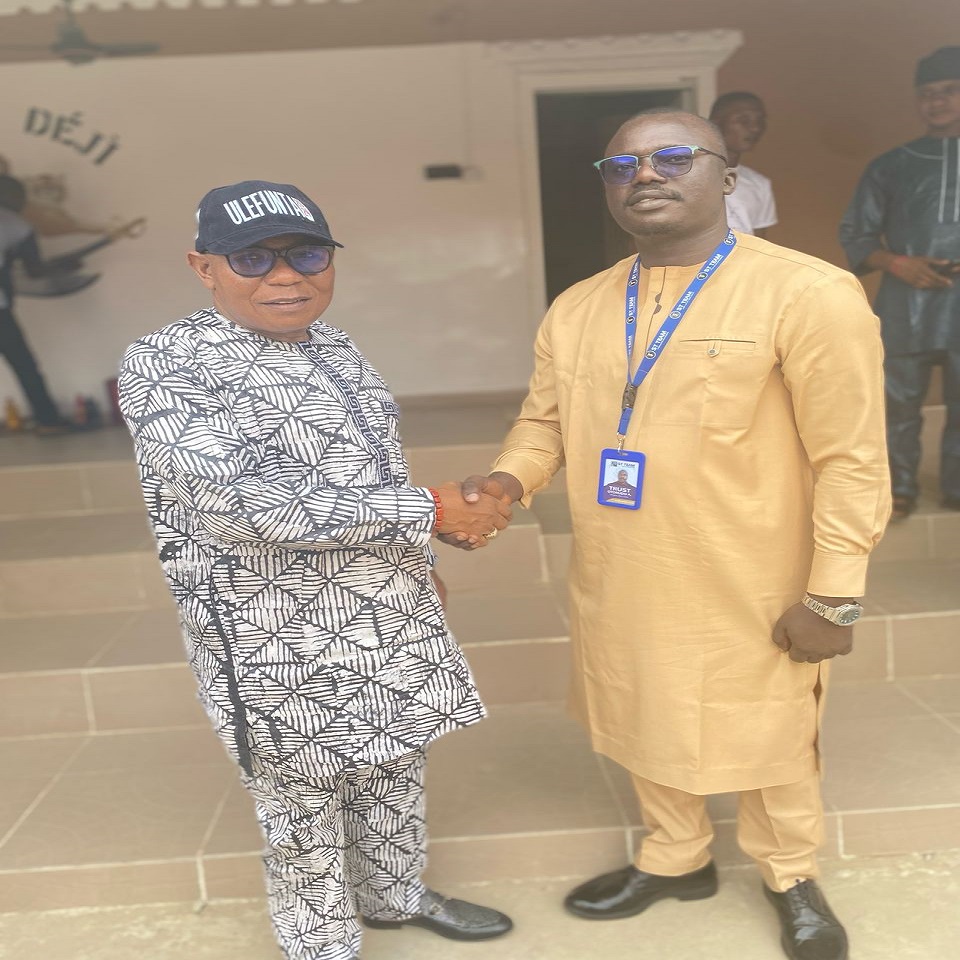News
Johnson @ Stakeholders Forum, Lays out Plans to Privatise NIGCOMSAT
Dr Omobola Johnson, minister of Communication Technology has said that the ICT industry has witnessed tremendous growth in the last three and a half years and revealed plans to privatise Nigerian Communications Satellite (NIGCOMSAT) by 2017.
The privatisation, she said, has become highly imperative if the facility must remain productive and perform its role efficiently.
Johnson, who presented the Ministry’s four-year scorecard to industry stakeholders in Lagos, said “If the full benefits of NIGCOMSAT must be realised, it must be privatised. We hope to complete this process in another two years from now.”
Johnson further noted ICT’s critical role in national development, adding that, “ICT promotes transparency and accountability; increases the efficiency and effectiveness of government/citizens engagement; and contributes greatly to the growth of the economy.”
The minister also said that through various initiatives, innovations and interventions from industry stakeholders, ICT sector is now viewed as critical, ranked with oil & gas and power, as it currently contributes 9.58% to GDP as at third quarter, 2014.
According to her, before the Ministry was created the IT sector was fragmented with small domestic players made up of approximately 350 companies, however, the improved environment by the present administration’s ‘transformation agenda’ has helped create local companies like Wakanow, Jumia, Konga, Paga, i-Sec, IrokoTV, to name a few, are innovating and adding value to the economy.
The Nigeria Communications Commission (NCC) statistics shows that the Nigerian telecoms sector, for instance, is one of the fastest growing sectors in the world and continues to attract significant foreign direct investment (FDI) with additional $6 billion between 2011 and 2013.
Before now, Johnson maintained, “The domestic value added in key areas was sub-optimal and it was characterized by consumer preference for global brands and high levels of importation of inputs and finished products. But with the establishment of the Ministry in 2011 and the laid down ICT documents: the National ICT policy, National Broadband Strategy and Local Content Guidelines, all came through the efforts of Mr. President and the stakeholders, we have been able to make remarkable progress”.
On Sector Priorities, she cited Connect Nigeria, Connect Nigerians, Local Content, ICT in Government and Enabling Environment as part of agenda to deliver on the promises of the transformation agenda by addressing the challenges in the ICT industry and leverage the opportunities for socio-economic development.
“Connect Nigeria,” the Minister said, has led to “ubiquitous, robust and cost effective ICT infrastructure to support the creation and development of a digital economy.
“Under the Connect Nigerians initiative, the intention was to ensure that Nigerians have affordable and reliable access to devices and have the capacity to use them; so that all Nigerians can share in the benefits”
“In our local content adoption, we aimed at removing the barriers to entry and increase the participation of Nigerian companies in the ICT industry; and stimulate job creation. Also, through the ICT in Government plans, we are increasing the adoption of ICTs by government to achieve greater transparency, efficiency and productivity in governance and citizen engagement.”
Under the Connect Nigeria initiative FMCT’s interventions are expected to fan up the national broadband strategy where increase in broadband penetration from 6% to 30% in 2018 will be achieved.
Through the Universal Service Provision Fund (USPF), the Ministry hopes subsidize access mechanisms for un-served and under-served areas or demographics, for instance 207 clusters involving rural areas already identified by the Fund, among other achievements.
Johnson said that there are various indicators to show the nation is on clear path to creating an inclusive digital economy that supports the positioning of Nigeria as a top ranked economy globally, “not only in terms of GDP but in terms of innovation, productivity, efficiency, transparency and good governance”.
News
Senate Committee Partners with Kuda Bank to Tackle Compliance Crisis as Nigeria Loses ₦3.4 Trillion

Over ₦3.4 trillion in financial infractions were uncovered across federal Ministries, Departments, and Agencies (MDAs) in 2021, according to the Auditor General’s report — a staggering figure that highlights Nigeria’s deepening compliance crisis and the urgent need for stronger oversight in public institutions.

In response, the Senate Committee on Legislative Compliance is hosting a high-level workshop to address the root causes of weak oversight and institutional gaps. The two-day event, with the theme ‘Consolidating Strategies for Strengthening Legislative Compliance by MDAs’, will take place on April 15 and 16, 2025 at NAF Suites, Abuja, bringing together lawmakers, regulators, and over two hundred representatives from federal MDAs.
Kuda Microfinance Bank is co-sponsoring the workshop as part of its commitment to supporting responsible innovation, governance, and regulatory alignment in Nigeria’s financial ecosystem.
Rasaq Kadri, Kuda’s Head of Compliance, will deliver a keynote address on the second day of the event, highlighting the efforts of Nigeria’s fintechs to promote inclusion and financial literacy without compromising on compliance best practices.
“When public funds go unaccounted for, it doesn’t just damage government credibility, it affects the entire financial ecosystem, including fintechs,” said Kadri. “We can’t build trust-driven products in a trust-deficient environment. Every time compliance is treated as a box-ticking exercise, we miss the chance to build something that lasts. Fintechs have the tools and perspective to support better governance, but more importantly, we have a responsibility to be part of the solution.”
As a sponsor, Kuda will take the workshop to engage directly with key stakeholders in Nigeria’s regulatory and public service ecosystem.
Plenary sessions will be chaired by the Honourable Attorney General of the Federation, Lateef Fagbemi SAN, and the Honourable Minister of Finance, Wale Edun. Conversations will focus on closing compliance gaps, strengthening institutional transparency, and promoting cross-sector collaboration.
The Senate Committee on Legislative Compliance Workshop is a unique platform for dialogue, knowledge-sharing, and collaborative action.
News
FG Inaugurates Board of Galaxy Backbone

The Federal Government has inaugurated the new Board of Directors of Galaxy Backbone Limited (GBB). The board’s mandate is to lead Nigeria’s digital transformation in Information and Communication Technology (ICT) infrastructure and services.

It will support Federal Government Ministries, Departments, and Agencies (MDAs) in a fast-changing landscape.
George Akume, Secretary to the Government of the Federation, led the inauguration. He emphasised the government’s commitment to making GBB more agile, responsive, and impactful. The aim is to drive national digital public infrastructure and service delivery. This was according to a statement by Segun Imohiosen, Director of Information and Public Relations.
The board has George Akume as Chairman. Its members include Rabi’a Adamu Waziri from the Petroleum Technology Development Fund (PTDF), Abubakar Abdulqadir Maje from the Joint Stock Association (JSA), Kemi Owonubi from the Ministry of Finance Incorporated (MOFI), and Margareth Ebute from the Ministry of Communications and Digital Economy.
Other members are Ibrahim Adeyanju, Olusegun, Olumbe Akinkugbe, Sanni Ibrahim Mohammed, and Adama Pindar from Galaxy Backbone Limited.
In his acceptance speech, Prof. Ibrahim Adepoju Adeyanju, Managing Director of Galaxy Backbone Limited, assured that the board will focus on sustainability. He said it plans to realign its vision and build a strong foundation for achieving strategic goals.
He also noted that within one year, the agency developed its Integrated Digital Transformation Strategy (IDTS). This strategy will run from 2025 to 2028.
News
ST Team Partners with Deji of Akure to Boost Agriculture and Food Security in Ondo State

Smart Treasure (ST Team) has honored the Deji of Akure, His Royal Highness Ọbá Aladetoyinbo Ogunlade Aladelusi, Odundun II, CFR, with a plaque of recognition for his dedication to the welfare of his subjects.

The presentation was made at the monarch’s palace in Akure by a delegation led by Instructor Luke Mbadugha from the Lagos Operations Center.
The visit was part of ongoing discussions on a partnership aimed at boosting agriculture in Akure, Ondo State.
The initiative, spearheaded by the ST Team, seeks to ensure the availability of farmland for agricultural purposes.
Under the arrangement, the ST Team will provide seedlings and manpower, while a significant portion of the proceeds will be distributed to the indigenes at no cost.
The remaining proceeds will support the administrative operations of the ST Team.
In his response, Ọbá Aladetoyinbo announced the allocation of a parcel of land at Ofosu, along the Ondo-Benin Road, for the project.
He described the initiative as a commendable effort to enhance food security for both the local community and the nation.
The monarch also called for a follow-up meeting to facilitate the assessment of the land for the project’s commencement.
Meanwhile, farming activities are set to resume at Aladodo Isikan in Akure South Local Government Area, another site designated for the agricultural project.
The four-acre land will be used to cultivate crops such as yam, cassava, plantain, and maize. A test run of maize planting began on April 9, 2025, with expectations of harvesting in three months.
Kabiesi Akinwunmi Adekanmbi Obey, the monarch of Olulero Okelero, Onitan Isikan, lauded the ST Team for their commitment to ensuring food availability.
He emphasized the importance of agriculture, stating, “Whoever brings food brings life.”
The ST Team, an investment platform dedicated to reducing poverty in Africa by 30% by 2027, has been actively involved in various Corporate Social Responsibility programs, including this agricultural initiative.
The project underscores their mission to create financial freedom and improve the quality of life for individuals across the continent.

 General News2 days ago
General News2 days agoAFD Commits €3m to Africa’s Financial Inclusion

 E-Financial2 days ago
E-Financial2 days agoVerve Expands Payment Frontiers with Global Partnerships, Contactless Innovation

 General News2 days ago
General News2 days agoEU Aims to Remove Barriers to AI Development

 News2 days ago
News2 days agoFG Inaugurates Board of Galaxy Backbone

 E-Business2 days ago
E-Business2 days agoAfrica Plans to Establish a $60Bn AI Fund

 News2 days ago
News2 days agoST Team Partners with Deji of Akure to Boost Agriculture and Food Security in Ondo State

 Telecom2 days ago
Telecom2 days agoBolt’s Playtivism Campaign Brings Chess Park to Lagos

 E-Business1 day ago
E-Business1 day agoCyberattacks: ‘56 Percent of Cases Stem from Existing Logins


























